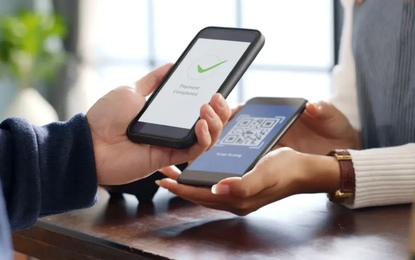

Knowing where a digital banking user is can help contextualize the language used to communicate with them. It also improves security.
In order to improve the personalization of financial products and services, the geolocation function in banking apps is emerging as a valuable tool to collect more specific and culturally contextualized information.
Financial institutions have boosted their reputation through a strategy of actively listening to their clients during the pandemic, according to a report by media outlet American Banker.
However, banks must work to continue building bonds of trust and security. In that sense, geolocation allows them to get closer to users through a better understanding of their circumstances, their environment, their behavior and habits.
The banks of the future need to connect with and be relevant to people's daily lives. In many cases, this will require partnerships with technology providers while keeping in mind the customer's privacy settings and preferences for sharing data.
The underlying idea is to add value to the user experience and for the bank to become an advisor or counsellor, differentiating itself in a competitive environment.
Geolocation is likely to continue to expand in the coming years, but banks will need to process the information and convert it into products and transactions according to the reality of each client.
Geolocation offers banks two important benefits as they seek to remain relevant in new distribution channels such as apps: it allows them to continue building trust and it facilitates the hyper personalization of the financial experience.
In the United States, for example, US Bank offers the location function to its customers who have a credit card and want to use it outside the country, raising the level of security for transactions and peace of mind for the user.
This solution allows the location of a card transaction to match that of the user's phone, helping the bank ensure that transactions go through, minimize disruptions and reduce the risk of fraud.
Since March, users in Mexico who wish to make transactions through digital channels must grant their bank access to their location, a measure aimed at preventing money laundering, terrorist financing and fraud.
Under this system, the financial institution is alerted when there is a significant change in user consumption patterns.
With regard to the use of data collected through geolocation — which always requires prior customer approval — transaction details can also be obtained to provide promotions and services to the customer at the right time and place.
If a customer routinely uses their wallet or app to pay for fuel at the same service station, the bank can take advantage of this type of information and send a discount push notification for the next visit.
As we can see, these patterns allow the entity to bring product options more in line with the user's daily life, from transaction notifications to the sale of financial products targeting consumer niches.
Customers are much more likely to respond to ads or products designed especially for them.
Once financial institutions have recognized the importance and advantages of geolocation technology, the best thing is to draw up a plan for how to apply the solution to the digital value proposition.
Initial considerations include a very detailed look at language customization. The notifications or products to be offered alongside the location feature must be compatible with the local cultural environment.
According to a recent report by Skyhook, a provider of geolocation technology, 47% of app users want to consume content relevant to their location.
Equally, it’s vital to mitigate privacy concerns. Apps must ask for the user's consent to share their location due to regulatory issues.
However, it’s always a good idea to remind customers that their data is protected and can’t be shared with third parties without prior authorization. It’s also important to emphasize that it will be used to offer them products tailored to their needs, as well as protecting their operations.
The good news is that consumers seem to react well to offers and promotions. Almost half of mobile users search for relevant coupons and deals, according to the Skyhook report. Clearly, the smart use of geolocation balances security, personalization and convenience for customers.
Join our online community and stay up to date with the latest news from the world of technology.